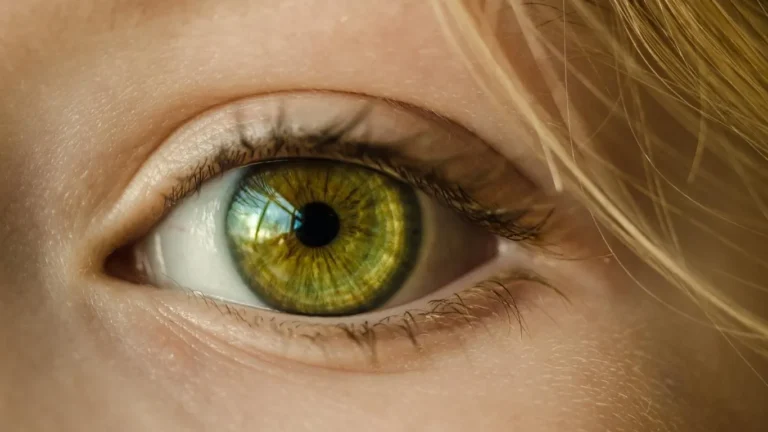Symptoms of GERD in Children – What to Look Out For
Are you noticing your child complaining about stomach discomfort, heartburn, or trouble swallowing? These could be symptoms of GERD (gastroesophageal reflux disease) in children. This guide will help you understand the signs, what to look out for, and how to get your little one the treatment they need.
When it comes to our kids’ health, we all want to stay on top of any issues, no matter how small they might seem. But some problems can be tricky to catch, and one such issue is GERD, or gastroesophageal reflux disease. It’s a condition where stomach acid backs up into the esophagus, causing all kinds of discomfort. While GERD is common in adults, children can get it too, and it’s often overlooked or misdiagnosed because the symptoms can be so varied. So, what are the signs that your child might be struggling with GERD?

What Is GERD in Children?
GERD happens when acid from the stomach regularly flows back into the esophagus. This can cause irritation and lead to a variety of symptoms. In infants and young children, GERD can sometimes be mistaken for something like a simple upset stomach or teething pain. But as kids grow older, the symptoms become more apparent, and it’s important to recognize them early on to prevent discomfort and more serious issues down the road.
Common Symptoms of GERD in Children
GERD can look a little different in children compared to adults, so it’s essential to be aware of the signs specific to younger ones. Here are some of the most common symptoms of GERD in children:
1. Heartburn or Acid Reflux
Heartburn is one of the hallmark symptoms of GERD. Your child might complain of a burning sensation in their chest or throat, which can happen after meals or when lying down. You may even notice them swallowing frequently or becoming upset after eating certain foods. It’s not always easy for kids to describe heartburn, but if they’re constantly feeling uncomfortable after eating, this might be the cause.
2. Regurgitation or Vomiting
If your child is frequently regurgitating food or vomiting, this could be a sign of GERD. It might not always be full-on vomiting—it could be a small amount of food or liquid that comes back up into the throat, especially after meals. If your child has a tendency to spit up more than normal or seems to have trouble keeping food down, it’s a good idea to speak to their doctor about it.
3. Trouble Swallowing
GERD can cause your child to have difficulty swallowing or even feel like food is stuck in their throat. This is because the acid can irritate the esophagus, making it painful to swallow. You might notice your child avoiding certain foods, chewing less, or taking longer to eat because of discomfort.
4. Chest Pain
Yes, GERD can cause chest pain in children, just like it does in adults. The pain is usually caused by acid backing up into the esophagus, which can feel like a pressure or burning sensation. Kids might complain about feeling pain or discomfort in their chest, and they could even describe it as a feeling of something being stuck inside.
5. Coughing or Wheezing
GERD often triggers coughing or wheezing, especially when the acid reflux reaches the lungs. Kids might have a persistent cough, hoarseness, or difficulty breathing that doesn’t seem to improve with typical cold remedies. If this is happening in conjunction with other GERD symptoms, it could be a sign that the condition is affecting their airways.

Uncommon Symptoms of GERD in Children
While the symptoms above are common, GERD can sometimes show up in less obvious ways. Here are a few less common signs you might not associate with acid reflux:
1. Poor Growth or Weight Loss
If your child is consistently not gaining weight or growing at a normal rate, GERD could be the culprit. The discomfort and pain from acid reflux might cause them to eat less or refuse food altogether, leading to weight loss. Additionally, chronic irritation from acid reflux can lead to digestive issues, further impacting growth.
2. Bad Breath
Chronic acid reflux can lead to foul-smelling breath due to the stomach acids backing up into the mouth. If your child has persistent bad breath, even after brushing their teeth or using mouthwash, GERD could be to blame.
3. Ear Pain
Believe it or not, GERD can cause ear pain or an ear infection in some children. The refluxed acid can irritate the eustachian tube, which connects the throat to the ear. This can lead to earaches or even a feeling of fullness in the ears.
What Causes GERD in Children?
There are a variety of factors that can contribute to GERD in kids. Some of the most common causes include:
- Weak Lower Esophageal Sphincter (LES): The LES is a muscle that normally keeps food and stomach acid from coming back up into the esophagus. If it’s too weak or relaxes inappropriately, acid reflux can occur.
- Overeating or Eating Trigger Foods: Large meals, high-fat foods, chocolate, caffeine, and citrus can all trigger acid reflux in children.
- Obesity: Extra weight puts pressure on the stomach, increasing the chances of reflux.
- Hiatal Hernia: This condition, where part of the stomach pushes up through the diaphragm, can also contribute to GERD.
How to Treat GERD in Children
If you suspect your child has GERD, it’s important to talk to their doctor. They may recommend lifestyle changes, such as:
- Dietary Changes: Avoiding trigger foods and meals that are too large.
- Medication: Antacids or acid blockers can help reduce the acidity in the stomach.
- Positioning: Keeping your child upright after meals can help prevent reflux. For infants, elevating the head of the crib may also help.
Conclusion
GERD in children is more common than you might think, but it’s also treatable. If you notice any of the symptoms mentioned in this article—whether it’s heartburn, regurgitation, coughing, or difficulty swallowing—talk to your child’s pediatrician. The sooner you catch it, the easier it is to manage, so your child can feel better and avoid long-term complications.
Appendices
FAQs
- Can GERD in children cause breathing problems? Yes, GERD can cause coughing, wheezing, and even asthma-like symptoms due to acid irritating the lungs and airways.
- Is GERD in children permanent? GERD can be managed and treated, and many children outgrow it as they get older. However, some kids may need long-term management.
- What foods should I avoid if my child has GERD? Foods like chocolate, citrus, spicy foods, and fatty foods can trigger GERD symptoms. Keep a food diary to track what causes problems.
References
- American Gastroenterological Association (2023). “Managing GERD in Children: A Guide for Parents.” Read More
- Smith, J. & Thomas, R. (2022). “Pediatric GERD: Causes and Symptoms.” Journal of Pediatric Health, 15(2), 101-108. Read Article
Disclaimer: The information in this article is for educational purposes only. Always consult your child’s pediatrician or a gastroenterologist for professional advice.

Camellia Wulansari is a dedicated Medical Assistant at a local clinic and a passionate health writer at Healthusias.com. With years of hands-on experience in patient care and a deep interest in preventive medicine, she bridges the gap between clinical knowledge and accessible health information. Camellia specializes in writing about digestive health, chronic conditions like GERD and hypertension, respiratory issues, and autoimmune diseases, aiming to empower readers with practical, easy-to-understand insights. When she’s not assisting patients or writing, you’ll find her enjoying quiet mornings with coffee and a medical journal in hand—or jamming to her favorite metal band, Lamb of God.







